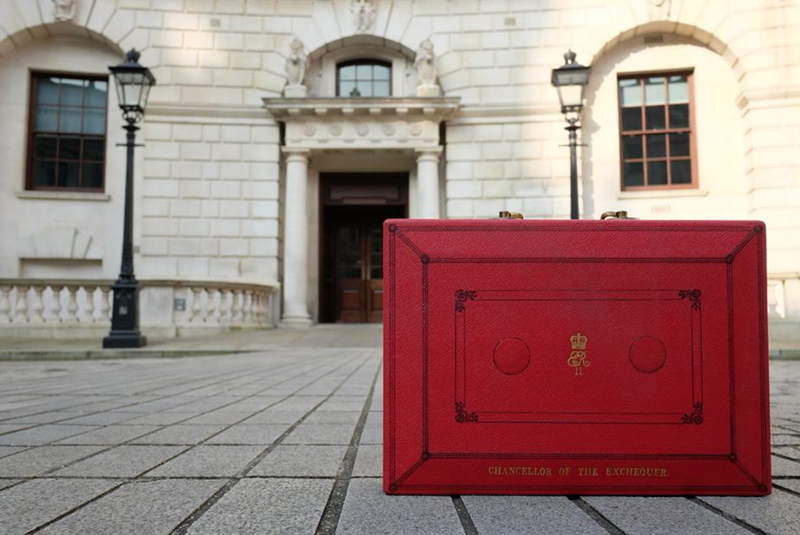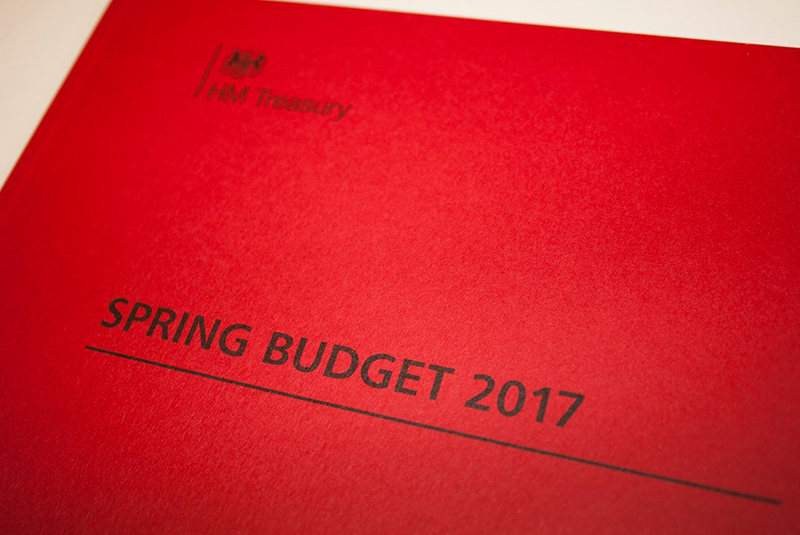
Responding to the Budget, the Builders Merchants Federation (BMF) has welcomed recognition by the Chancellor that Britain cannot overcome low productivity without reform of the existing system of technical qualifications. The BMF believes that the introduction of ‘T’ Levels is a step in the right direction, but that more needs to be done to ensure the building industry is future-proofed.
John Newcomb, Managing Director of the BMF, said: “The building industry and its supply chain are experiencing huge skills’ shortages. Construction firms, large and small, face real difficulty attracting new faces. Our industry is not seen by young people as a long-term career option — especially by young women.
“This week is National Apprentices’ Week and we ask ministers to look at what more can be done to encourage school- and college-leavers to take up the trades we so desperately need — the bricklayers, the roofers, the carpenters, the electricians, the plasterers and the merchants.
“If the Chancellor’s announcement about ‘T’ levels helps redress the parity of esteem between academic and vocational training, then that is good news. Merchanting provides fantastic career opportunities for young people, and the BMF is keen to persuade parents that university is not always the right choice for their children.”
In a further communication with its Members, the BMF summarised the main details from the Budget 2017. The key points referenced include:
Business Taxation
Business Rates
The Chancellor announced help for businesses that face huge rises following the recent revaluation. Any business coming out of Small Business Rate Relief will benefit from an extra cap — meaning their rates’ bill will go up by no more than £50 a month. £300 million of new money will also be made available to English councils to allow them to offer discretional relief to businesses facing real hardship.
Corporation Tax
No change to previous announcements. The main rate will drop from 20% to 19% next month and to 17% in April 2020.
Value-Added Tax
No change in rates but from 1 April 2017, the registration threshold goes up from £83,000 to £85,000.
Capital Allowances
No new announcements on investing in new plant & machinery.
Insurance Premium Tax
No change to previous announcement. Standard rate will go up on 1 June 2017 from 10% to 12%.
Employment
National Minimum Wage rates
No change to previous announcement and rates go up from April 2017 as follows:
• 4.1% increase in 25 years and over rate from £7.20 to £7.50 per hour
• 1.4% increase in 21-24 year old rate from £6.95 to £7.05 per hour
• 0.9% increase in 18-20 year old rate from £5.55 to £5.60 per hour
• 1.3% increase in 16-17 year old rate from £4.00 to £ 4.05 per hour
• 0.9% increase in apprentice rate from £3.40 to £3.50 per hour.
Transport
Vehicle Excise Duty
From 1 April 2017, VED rates for cars, vans & motorcycles go up in line with the Retail Prices Index.
HGV Vehicle Excise Duty and Road User Levy rates are frozen from 1 April 2017.
Road Fuel Duty
No increase, so main rate for petrol & diesel will remain frozen for 2017-2018.
Diesel and Air Quality
Decisions on tax treatment of diesel vehicles were deferred until the Autumn — and there was no news of a diesel vehicle scrappage scheme.
Budget 2017 comment from others in the sector:
 Responding to the Chancellor’s Spring Budget Statement, Brian Berry, Chief Executive of the Federation of Master Builders, said: “The Chancellor clearly understands that the UK won’t address the productivity challenge unless we rethink our approach to technical and vocational education. T-Levels could be the answer if they genuinely rival A-Levels in the eyes of parents, teachers and young people.
Responding to the Chancellor’s Spring Budget Statement, Brian Berry, Chief Executive of the Federation of Master Builders, said: “The Chancellor clearly understands that the UK won’t address the productivity challenge unless we rethink our approach to technical and vocational education. T-Levels could be the answer if they genuinely rival A-Levels in the eyes of parents, teachers and young people.
“UK society as a whole has been guilty of putting too much emphasis on the academic route — this has made it more difficult for vital sectors like construction and house building to attract the talented people we need. In construction, we are suffering from a severe skills shortage and this is likely to worsen once we leave the EU and no longer have easy access to European labour. This £500 million funding announced for T-Levels is therefore a welcome and much-needed boost.
“The Budget was an all-round strong performance from the Chancellor and he had good news to report right across the piece. However, increasing tax on the self-employed is not helpful. If we want to establish a resilient, Brexit-proof economy, we must encourage and support our current and future entrepreneurs in the construction industry and beyond. A jump in National Insurance Contributions from 1% to 10% next year could send the wrong message to those individuals who are considering going it alone. The self-employed are the backbone of our economy and the Government should tread carefully here.”
John Savage, Managing Director of Flame Heating Spares, said: “I have long been an advocate for supporting small businesses and the self-employed, as we deal with a lot of sole traders every day, but I feel that the rise in NI contributions is very harsh. The 1% rise next year, with a further 1% increase in 2019, will hit the self-employed in their pockets, so while this tax increase may benefit the Treasury, it could have a detrimental effect on various industries, including the heating and plumbing trade.”
Allan Wilén, Economics Director at Glenigan, said: “The Budget includes a few specific measures that will be welcomed by the construction industry, including funding for a further 110 free schools and the allocation of £103 million to tackle pinch-points in the national road network in the midlands and the north of England.
However, the stronger growth forecast for the UK economy to 2% in 2017 is likely to have a greater positive impact upon the industry’s fortunes over the coming year.
“Labour supply and skill shortages have long been a major concern for construction; an issue that has been thrown into sharper relief following the Brexit vote. The Government’s efforts to raise the status of vocational training, with the introduction of T-Levels, are a welcome step towards tackling this long term issue.”









